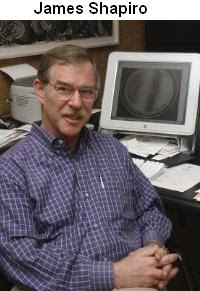I will be attending the Royal Society Meeting on New trends in evolutionary biology: biological, philosophical and social science perspectives. I'll post each of the abstracts and ask for your help in deciding what question to pose to the speakers. Here's the abstract for Paul Griffiths's talk on Genetic, epigenetic and exogenetic information in development and evolution.
I outline an approach to measuring biological information where ‘information’ is understood in the sense found in Francis Crick’s foundational contributions to molecular biology. Genes contain information in this sense, but so do epigenetic factors, as many biologists have recognised. The term ‘epigenetic’ is ambiguous, and I introduce a distinction between epigenetic and exogenetic inheritance to clarify one aspect of this ambiguity. These three heredity systems play complementary roles in development and evolution.Paul Griffiths is a philosopher of biology from Australia. He has been interested in genes for many years. I don't know what he's going to say about epigenetics. I suspect he can make a case for information in the sense that a naked DNA sequence differs in information from a methylated DNA sequence. (Restriction/modification is a good example.)
The problem with this kind of hair splitting is that ultimately the extra information (e.g. methylation) is provided by enzymes (methylases) encoded by genes in the genome. Epigenetics, per se, doesn't add any new information. It's just a consequence, or outcome, of the information already in the DNA.







